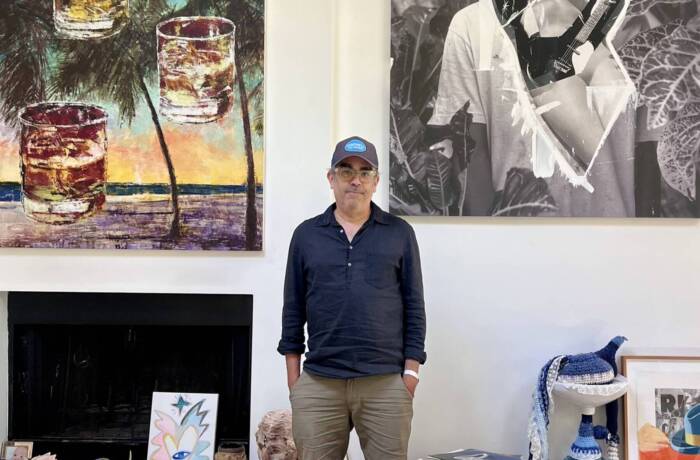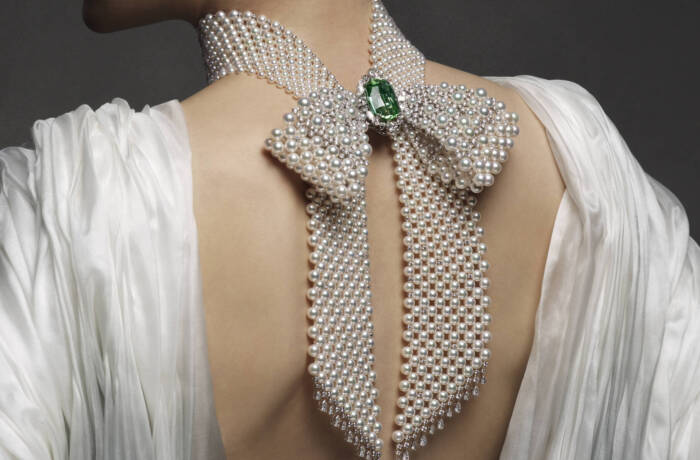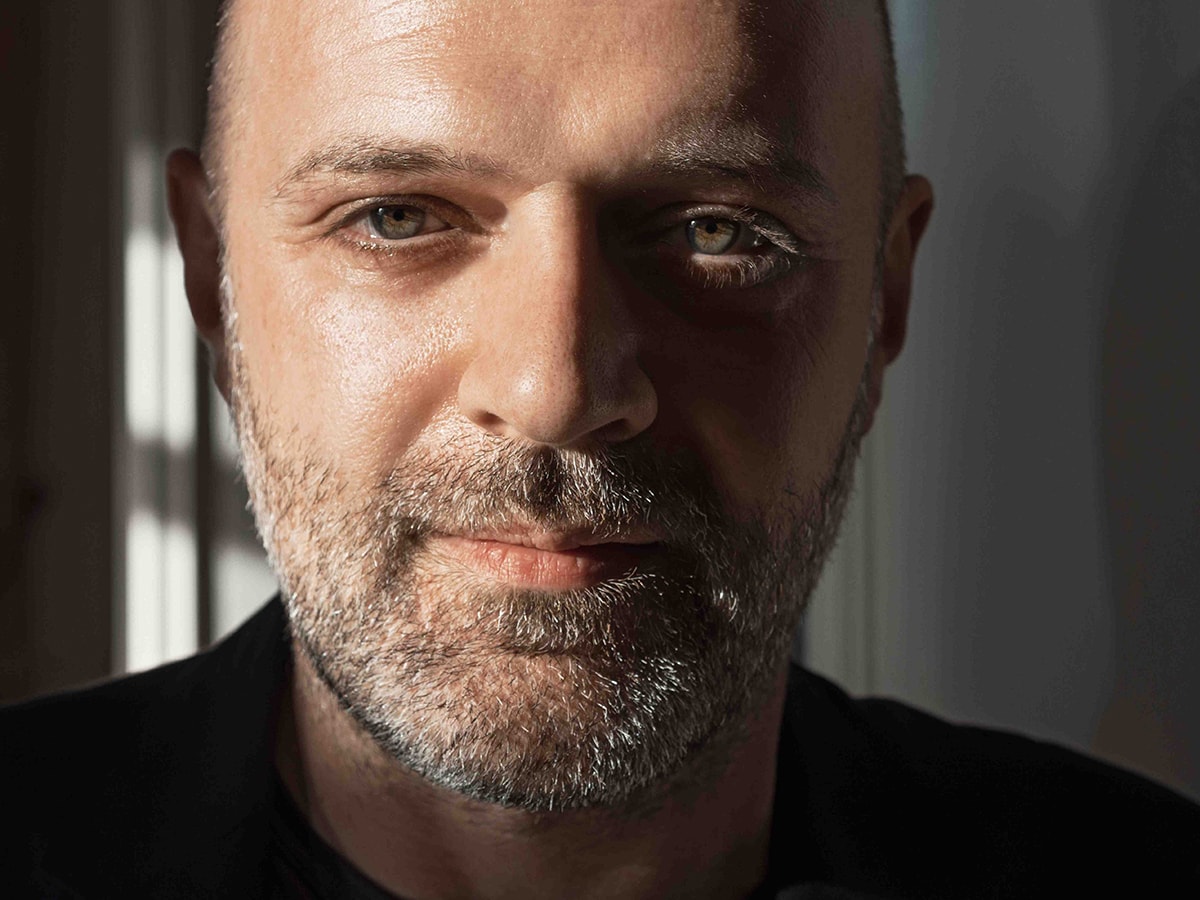
Hussein Chalayan is fashion’s avant-garde experimentalist and supreme craftsman
Hussein Chalayan is high fashion’s savant and one of the most influential designers of the past two decades. He speaks to LUX about originality, art, and how celebrities are cheapening the industry
LUX: You have been involved in the world of fine art for a long time, with museum shows and the like. How connected are the worlds of art and fashion?
Hussein Chalayan: I don’t actually necessarily think that the art and the fashion world are that connected for a lot of people. In my work they were always connected, because of the nature of the ideas. But in the wider world, I feel like there are a lot of art collectors who love fashion. And then there are a lot of art publications in which fashion companies advertise, so I think it’s an economic co-dependency. But I do think that they are two separate disciplines. In my case and a few others they can merge, but often I feel that artists and designers do think differently.
LUX: In what way?
Hussein Chalayan: Fashion is a much more industrial process. The fashion world is much more about producing as much as possible, unless you do couture. I think the mindset is a bit different as well, but the biggest difference is that the kind of discourse you hear in the art world, for me, does not really exist in as serious a way as in the fashion world. There is discourse in the fashion world but it’s not as structured as the architectural world, the design world, or the art world. There are academics in fashion that really know their business. But unfortunately it’s not taken as seriously as the other disciplines, but it deserves to be.
Follow LUX on Instagram: the.official.lux.magazine
LUX: When you started in the fashion world, it was much less mainstream – there were no celebrities and bloggers sitting in the front rows, for example. Has the fashion world changed for better or worse?
Hussein Chalayan: I think both. The arrival of the digital era, in my view, is the biggest change. Because when we were first starting, I was in the same generation as Alexander McQueen, we were shooting at the same time in London and there was no such thing as digital media. And when digital media came, it meant we were not pigeonholed as avant-garde designers, or whatever, so easily. Because, before then, editors would be able to categorise you and use images to present you in the way they wanted. And what would then happen is that, because they would do that to attract people to their publication, all your other things that you spent hours on, like your beautiful tailoring, wouldn’t necessarily be included because you were really in the hands of the editor. Whereas now, in the digital media, everyone can see everything you do. So, that’s democratised things in a good way. On the other hand, of course, it means that the high street can copy you before you’re able to even produce your own collection, which is actually a problem. This has happened to every designer, you’re just seen as an ingredient. It cheapens what designers do. I guess the anticipation has been wiped out because of the digital era, which I think is a pity.
LUX: You’re now in London after 16 years in Paris.
Hussein Chalayan: Yes. In the past, people would skip London and go straight to Milan, and that was why we went to Paris. But now London has quite a few important houses. Yes, more people go to Paris and Milan and New York, but still, London is better than it was. And it’s just less hassle, because I don’t have to take the whole team to Paris.
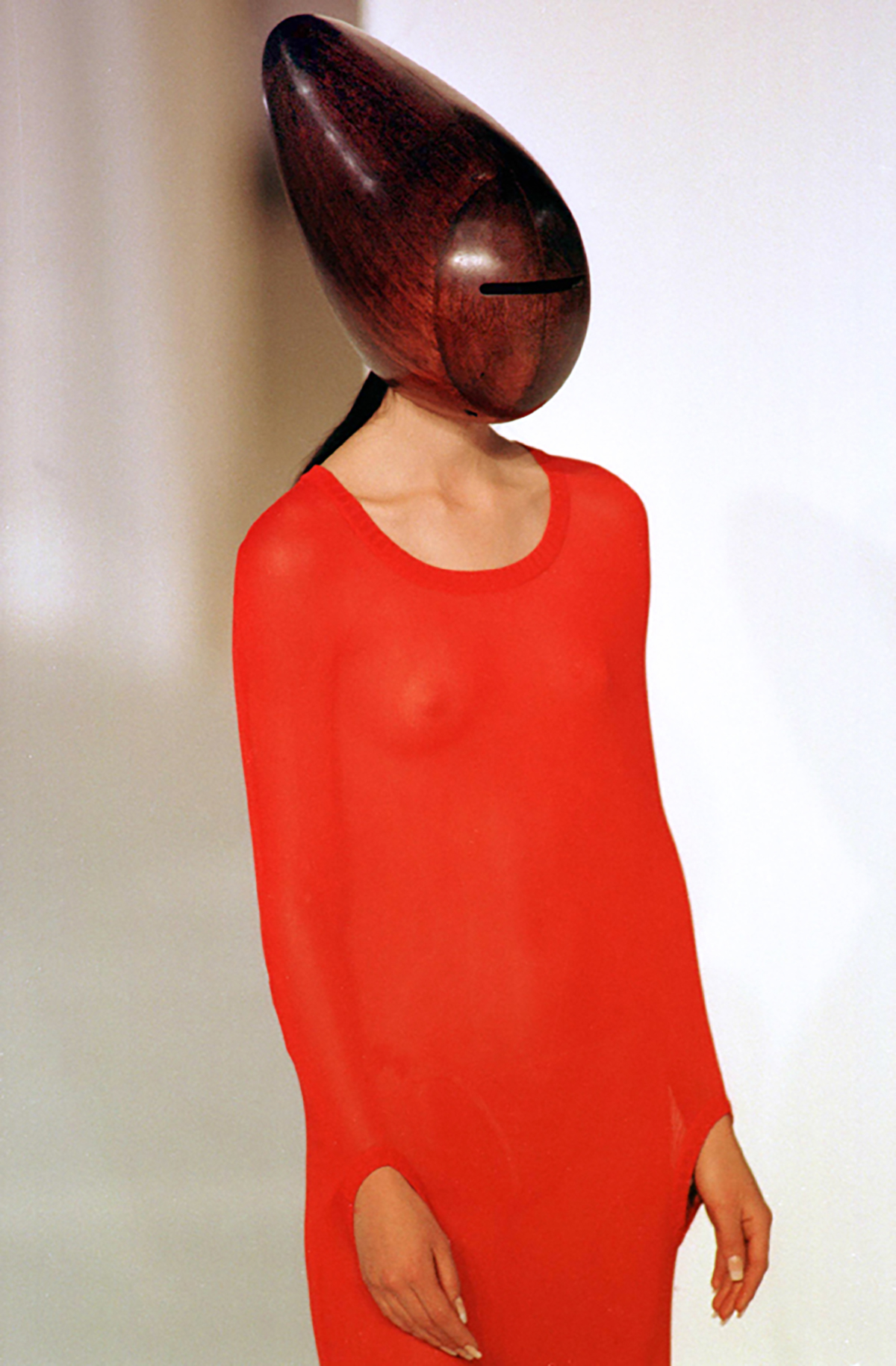
Design from the Chalayan A/W collection 1998
LUX: What broad themes are inspiring you at the moment?
Hussein Chalayan: I would say that broadly I’m interested in anthropology, I’m interested in behaviour, in how different cultures perceive things. What creative people do is that they explore or propose new ways of looking at something. That’s also therapeutic, because you, the artist or the creative, are trying to solve issues or at least address issues.
LUX: What is the most interesting thing you are doing right now?
Hussein Chalayan: The most exciting thing right now for me is probably our shop, because it’s our first. We’ve had it for almost two years, and it’s opened up a whole new horizon of possibilities, because the shop is a response mechanism as well as a hub where we hold events. It’s where we get to know our clients in a bit more detail, a bit more depth.
LUX: Is this bringing people to your world who you wouldn’t naturally come across?
Hussein Chalayan: I would come across some of them, but I could never have imagined the level at which we’re now engaged with them.
LUX: Who is a typical person who wears Chalayan?
Hussein Chalayan: A lot of people from the art world. And a lot of people from the architecture world, as well. But all walks of life, really.
LUX: Is there a balance that you have to hold between creativity and saleability?
Hussein Chalayan: Definitely. I’ve learned a lot more in the past ten years about that, tried to work very closely with our sales team, whoever we’re working with at the time, and merchandising.
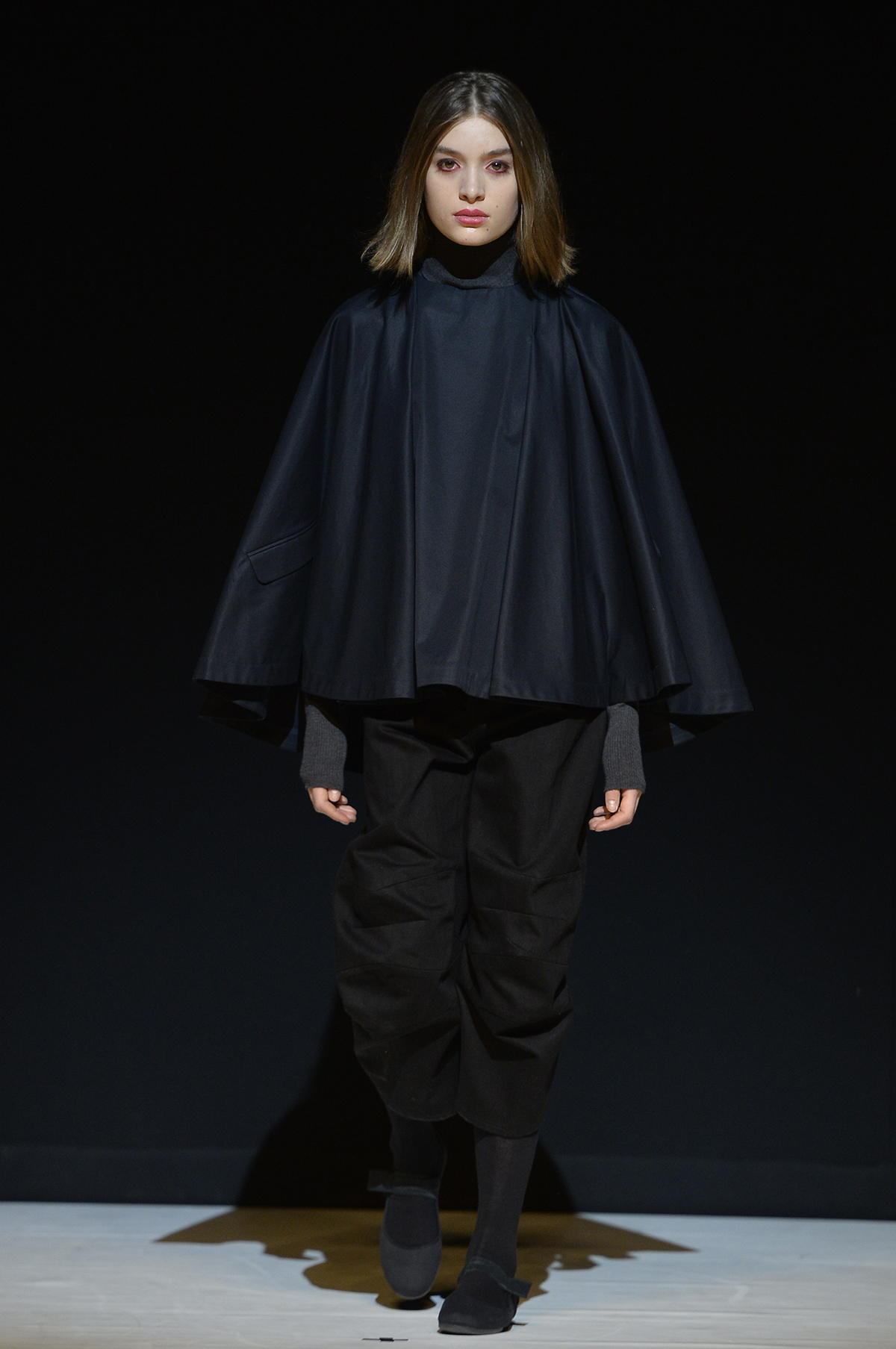
Design from Chalayan’s A/W collection 2017
LUX: Wearable tech is something that you’ve been involved with for a long time. Is it the future, or is it overplayed?
Hussein Chalayan: I have a slight problem with the whole issue. I have tried to use it more poetically. And the minute that it becomes like something where it measures your heartbeat, or it does just one thing only, I find it gets banal. There’s a lot of gimmickry around it as well, and I’m just not convinced by it.
LUX: Do you ever wish you’d been more commercial?
Hussein Chalayan: The thing is, I don’t really know what commercial means anymore. I mean, if you can wear something, it’s commercial. But I think that 95 per cent of everything we did was always wearable from the beginning but because people saw your experimental work, they perceived you as doing only that, but actually, I wasn’t. And I think that this applies to a lot of designers, that you can make show pieces that are the pinnacle of your idea for that season, but 99 per cent of what you did was actually the clothes one can really wear. But then, newspapers only photograph those show pieces, season after another, and you are then projected as this avant-garde designer that doesn’t do anything else. As I mentioned, in the pre-digital era, it was completely like that. And then in the post-digital era, it’s almost like we had to restart, because people were finally seeing that we can make clothes that you can really wear. So I’d say that a big part of our collection is commercial, but I don’t like that word; I’d say it is wearable more than commercial. I think the word ‘commercial’ cheapens it.
Read more: 6 questions with Italian womenswear designer Alessandra Rich
LUX: Are there too many designers and labels around these days?
Hussein Chalayan: I think there are, but I also think it’s arrogant for another designer to say that. But it’s true. There are too many designers, and there’s too much product. I think that you could have a (design) house but you could decide to base it on a category, you can decide that you’re good at knitwear, or you’re good at prints, and that’s your house. There are too many designers that are doing everything. If you were to become a designer now, I would strongly advise you to be a specialist in some area.
LUX: Is London important to you?
Hussein Chalayan: We’re lucky living in a place like London because I feel like it’s really a state, I call it the state of London. It’s not really a city, it’s a country. People in London are a lot more accepting of foreigners. If you go outside London, it’s white, meaning culturally white, it’s, you know… Brexit.
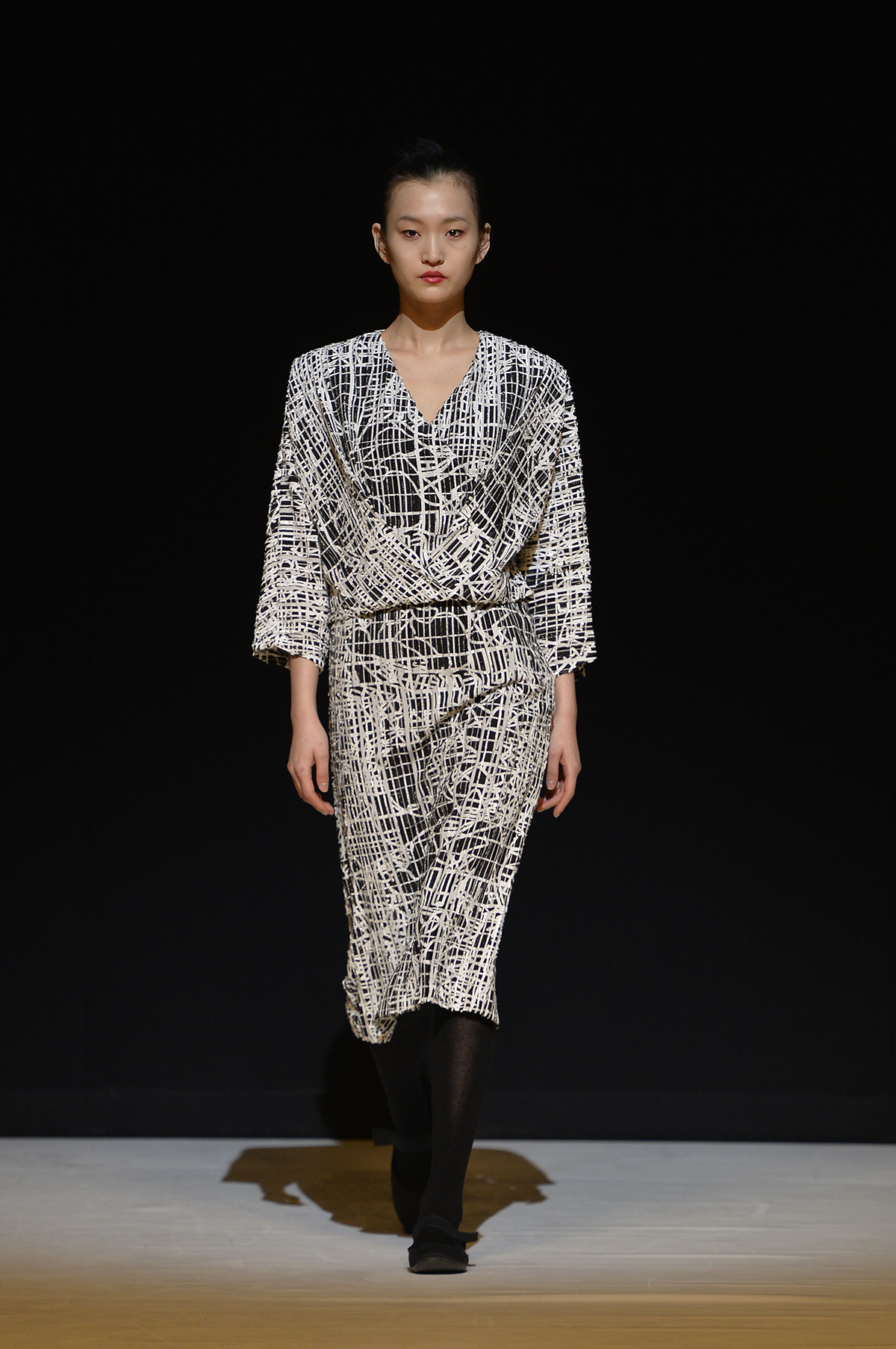
Design from Chalayan’s A/W collection 2017
LUX: What is your view on the fashion industry in general, right now?
Hussein Chalayan: The biggest issue we have is that fashion has just got so nepotistic and is so much about the big conglomerates. It’s becoming a sort of bullshit industry really, in that it’s no longer about the creativity… it’s almost about who you are associated with, if you belong to a particular group, or if you are a pop star. It’s awful that our industry has allowed this to happen. It’s allowed this to happen because they’re living with too much anxiety. It’s killing independent designers and actually killing creativity, as well. So, I feel like we’re in quite a terrible state really, right now, and every single fashion person you speak to would agree with this, more or less. But then, collectively, they don’t do anything about it. So, I find it peculiar.
LUX: What do you think of celebrities who launch their own collections?
Hussein Chalayan: There’s room for celebrity fashion, but I would like it to be seen as a separate category and I don’t think that should be mixed up with the years of work that we’ve been doing and then put in the same space. Department stores put you next to a rapper’s collection, and I just think it’s too bizarre. That ‘anything goes’ mentality in fashion cheapens our industry. A celebrity could have impeccable taste, and they could be really good curators, and they can employ really good designers and could really get something going with the energy and attitude that is associated with them. But I just think that that’s a new feel, that’s another category. Such labels with massive Instagram followings actually haven’t got anything to do with design, it’s more to do with the personality of the person designing it.
LUX: Who do you admire most among designers?
Hussein Chalayan: I think that, and I’m not saying this necessarily because of the design content, but I love the way that Azzedine Alaïa has pursued his career, because his work is not really about the flavour of the month, it’s very specific. I admire designers who do their own thing in their own way


